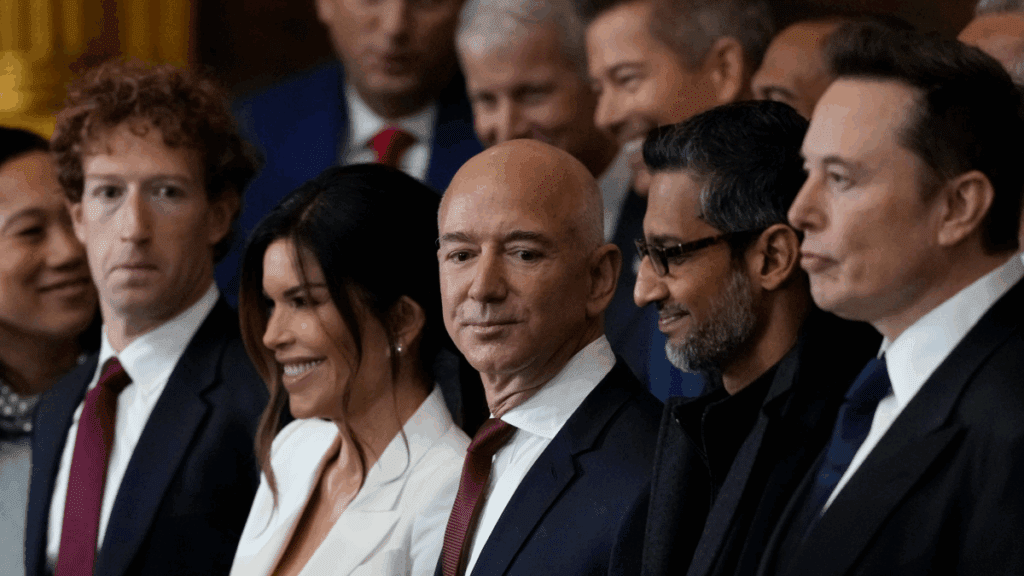The article discusses the growing influence of tech billionaires—often referred to as a tech oligarchy—over democratic processes worldwide. With their immense wealth and control over information infrastructures, these billionaires, like Mark Zuckerberg, Jeff Bezos, and Elon Musk, have the power to disrupt information supply chains that democracies rely on.
Despite mass digitization promoting some decentralization in information production, it has also led to a significant centralization of power, putting tech companies in a position to make unilateral decisions about information flows. For example, changes in content moderation policies at platforms like Meta illustrate how these billionaires can shape the information available to the public, often influenced by political agendas.
Moreover, individuals in this oligarchy have shown direct political influence, manipulating information in various countries and engaging in foreign interference. Regulatory frameworks have largely failed to curb their influence, with existing laws proving insufficient in addressing how platforms facilitate misinformation.
The article concludes by emphasizing the need for systemic change to address these risks. Proposed solutions include reviewing foreign ownership rules in media, supporting traditional news organizations, and requiring social media platforms to manage misinformation effectively. Public resistance and governmental assertiveness can also counteract the tech oligarchy’s influence, indicating that while challenges remain, opportunities exist to fortify democratic processes.



